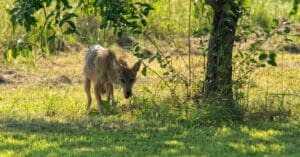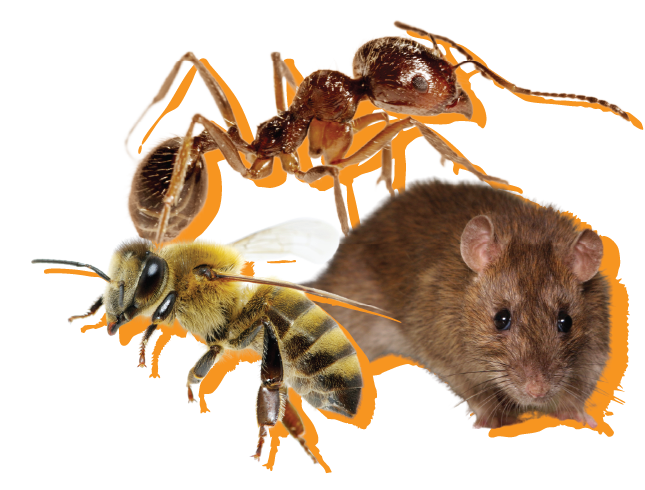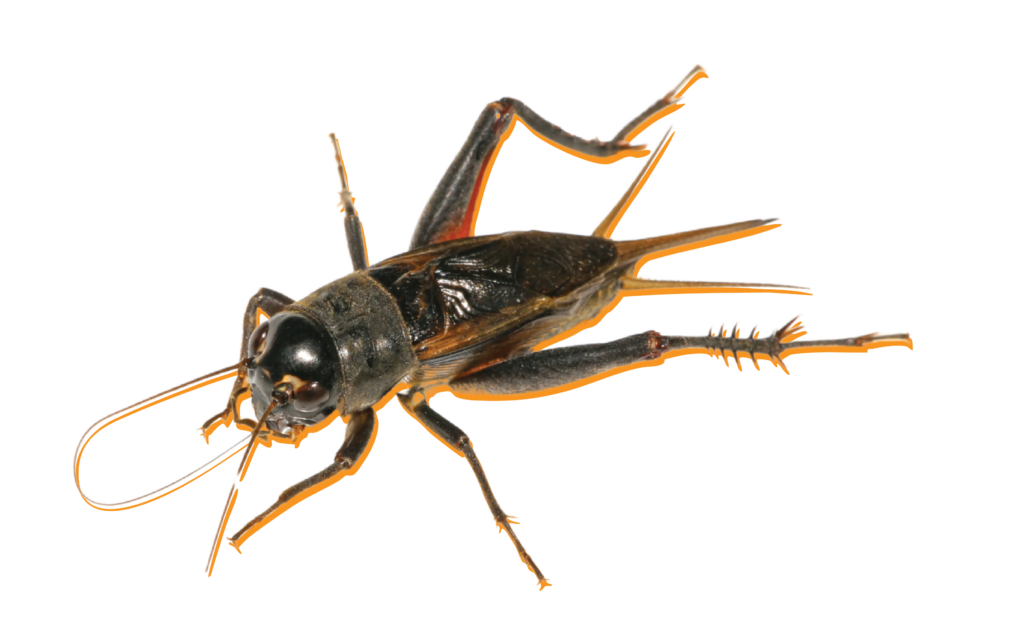Insects, rodents, and other wild animals can cause significant damage to homes and buildings. There are effective ways to do wildlife removal in a building and address circumstances that attract them in the first place.
Termites alone cause billions of dollars in structural damage every year, according to the U.S. Environmental Protection Agency. Wild animals like mosquitos, rats, squirrels, and other rodents can carry many deadly viruses. Bats and wild dogs can have rabies, among other dangerous diseases.
Winter months present unique challenges for keeping wild animals away. This article digs into those and offers solutions for almost any set of circumstances. Keep reading to find out how to keep wild animals away from your house this winter.
What Attracts Pests in the First Place?
All living creatures need water to survive. All mammals and insects need food as well. Many of them will also seek sources of warmth, including shelter, during the winter months.
These realities are related to the most significant factors that make your home attractive to pests. For instance, standing water or food remnants from cooking or meals (even small morsels) that get left out can be enough to entice insects or rodents.
One infestation can have a cascading effect as well. Predatory animals like spiders may enter your home to prey on insects that are already there.
Cold weather gives insects and rodents another reason to move indoors. Termites, ants, cockroaches, and spiders are examples of pests that are content outdoors during spring and summer months, but look for places to stay warm when the weather turns cold.
Mice, rats, and squirrels do the same. Keeping these dynamics in mind can be central to formulating solid pest control solutions.
Tips to Keep Wild Animals Away from Your House This Winter
There are many different things you can do to keep insects, rodents, and wildlife out of your home during winter months. Here are the five top ones to consider.
1. Eliminate Food and Water Sources
As mentioned, food and water are two of the main reasons that pests will venture indoors. Getting rid of these sources can go a long way toward keeping critters at bay.
Thoroughly clean kitchens and other food prep areas, as well as where you eat, after using them. Wipe up crumbs and spills promptly and put dirty dishes directly into the sink or dishwasher.
Store dry goods (especially things like sugar and flour) in airtight containers that are impenetrable to pests (this has the added benefit of keeping food fresh). Get a trash can with a tight lid and take out compost or kitchen scraps daily.
Minimizing water sources is a bit trickier. Address sinks, showers, or drains that tend to pool water. Fix leaky faucets or pipes.
If you have standing water or excessive moisture in your crawl space or basement, this too can be a major draw for pests. Take steps to eliminate or minimize this as much as possible. Keeping spaces clean and dry can greatly dissuade unwanted intruders.
2. Try Natural and DIY Remedies
There are many home remedies you can try before breaking out the big guns. These are generally inexpensive and easy to deploy, and can be a worthwhile first step in pest control.
Boric acid is a cheap yet effective way to ward off pests (in fact, it is often one of the main ingredients in expensive store-bought products). It is also generally safe for children and pets, though ingesting large amounts can be harmful.
Sprinkle the powder directly into areas where insects are commonly found, such as cracks, crevices, or along baseboards. You can also create bait stations that contain a mix of sugar (or other sweetener) and boric acid, in a 2:1 ratio, which will attract and kill insects.
Vinegar will not kill bugs but it can repel them. Spray it in areas where you find ants and cockroaches.
3. Seal Points of Access
Making it harder for animals to get into your home is another potent strategy.

If there are any glaring openings in your building’s infrastructure, address those first.
Holes in dormers, cupolas, or the roof itself can be enticing to squirrels, mice, or bats. Do a thorough inspection to ensure you are not sealing up any unwelcome guests inside (and call a professional if you are doubtful about getting them out).
Add or repair screens in windows and doors. You can use nail polish to seal minor tears.
Eliminate gaps around doors with weather-stripping. Purchase door sweeps that completely block the space between the threshold and the bottom of the door, so that pests cannot gain entry. Hydraulic closers can ensure doors stay shut, minimizing the chances for something to crawl in.
Finally, consider addressing any “runways” that give animals entrée to specific areas of your home. Common examples include tree branches that hang over your roof or shed. Putting up minimal fencing (like chicken wire) around crawl spaces or basements may be enough to keep wandering vermin away.
4. Keep Animals Out of Your Yard
Dissuading animals from entering your yard is another tool that makes them less likely to access your home. Secure outdoor garbage cans to avoid attracting rodents or larger animals. Also, make sure things like pet food and bird seed are in containers that wild animals cannot access.
Fencing is a safe, effective way to keep larger animals away, or at least make it harder to get near your home. You can buy liquid and granular repellants to scatter on your lawn, which will not harm the animals but deter them from the space. Ultrasonic repellants and even motion-activated sprinklers can startle animals and keep them from returning.
Gardens can attract wildlife, including insects and mammals, but can also become a tool to keep wild animals away from your house. Certain smells may do the trick.
What scent keeps animals away? There are lots, but below are some of the most effective ones:
- Garlic
- Peppermint
- Citrus
- Cayenne
Deer, rabbits, and many different insects dislike the smell of garlic. Plant peppermint to keep wildlife away. The strong scent can deter mice, rats, and many insects from infiltrating your garden. Cayenne and citrus scents, including lemon, orange, and grapefruit, can repel rodents, cats, and dogs.
You can grow the plants above, buy animal repellents, or make a homemade spray to keep animals out of your garden. A combination of scents may be most impactful. Keep in mind that, whichever ones you use, they need to be reapplied regularly, since rain and watering can wash them away.
5. Hire Professionals
If the tactics above fail to address an issue, or for recurring problems, consider enlisting professional assistance. Experienced pest control personnel will be able to better assess the reasons wild animals are entering your home. They also can recommend appropriate solutions.
Professional pest control services will offer preventative fixes that keep problems from getting out of hand. They will use commercial repellants or insecticides for results that are not achievable with DIY solutions. Also, scheduling regular maintenance can address any minor issues before they become major ones.
Beyond professional pest control services, consider animal rescue shelters and wildlife removal in Greenville, SC. Look for ones that specialize in feral animals, including coyote and dog removal. You can even find bat removal in Greenville, SC, as well as services for other hard-to-eradicate animals.


